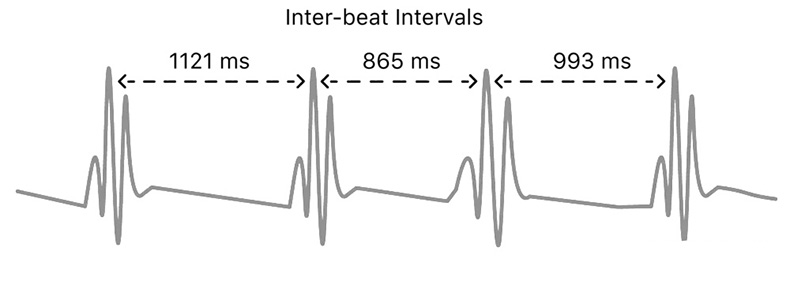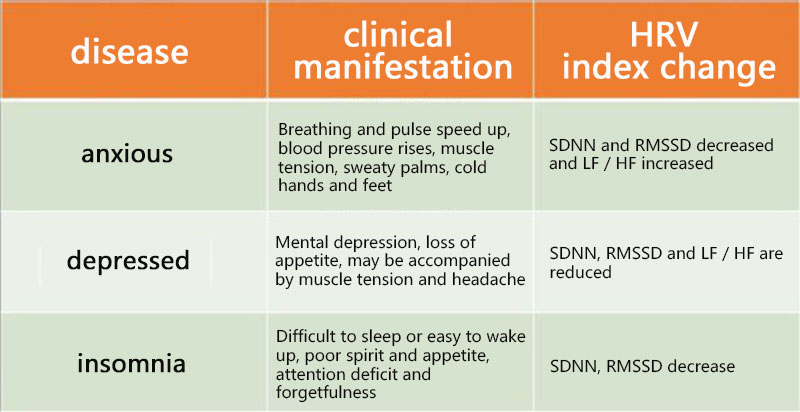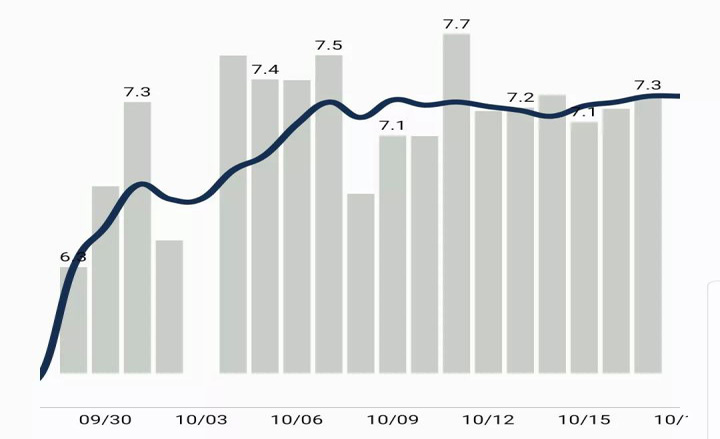[content overview]
① A normal heart has a normal "irregularity", and HRV measures the irregularity of heartbeat.
② The irregular heartbeat is dominated by the autonomic nervous system; Therefore, HRV can reflect the normal of the central nervous system.
③ Generally speaking, the higher the HRV, the better. High HRV represents better cardiovascular performance and stress tolerance, while low HRV represents higher hidden dangers of anxiety and depression and higher prevalence of cardiovascular and cerebrovascular diseases.
④ Excessive work pressure, mood swings, poor sleep quality, and some drugs and foods are likely to reduce HRV.
⑤ Continuous exercise, especially endurance training, can regulate HRV - increase HRV.

What exactly is HRV?
In short, heart rate variability (HRV) is the change of cycle gap of successive heart beats or the change of heart beat speed. It is determined by the length of two adjacent R-R intervals, that is, the small difference from the first cardiac cycle to the next cardiac cycle.
A normal heart has a normal "irregularity".
For example, your heart rate is 60 at the moment, which doesn't mean your heart beats once a second.
The actual situation may be that the interval between two uninterrupted heart beats is 1.12 seconds, and another interval between two uninterrupted heart beats is 0.86 seconds, but the average value jumps 60 times in one minute.
HRV measures the irregular heartbeat.
If your heart beats regularly, then HRV will be relatively low; If you have a large difference in heart rate interval, your HRV will be relatively high.
Generally, people expect the higher the HRV, the better.

How to detect HRV?
It can be detected with the help of smart watches, rings and HRV supporting devices.
It must be emphasized that there are various formulas for calculating heart rate variability.
Different products have different calculation formulas, and the measured results will be different.
At the same time, HRV does not have a best standard range, because it will be affected by many reasons such as age, hormones and living habits.
When there is no comparison of similar groups, the most effective significance of HRV is to compare with your own basic values.

What are the effects of HRV? What's the use?
Some external environment, such as work pressure, will inhibit your sympathetic nerve, stimulate your sympathetic nerve, and then reduce HRV.
If your HRV drops, it means that some reasons have affected you, such as excessive work pressure, mood swings and not sleeping well. In addition, smoking, drinking and some drugs are also likely to reduce HRV.
If you have a continuous sharp drop in HRV, it may be a pre disease, which suggests that you need to pay attention to rest.
Conversely, if your HRV trend is rising, it means that you are likely to have done something right, such as eating reasonably, sleeping well, or carrying out moderate endurance training.
Overall, testing HRV can help you understand your physical condition.

If you have any questions, please contact us by the following ways